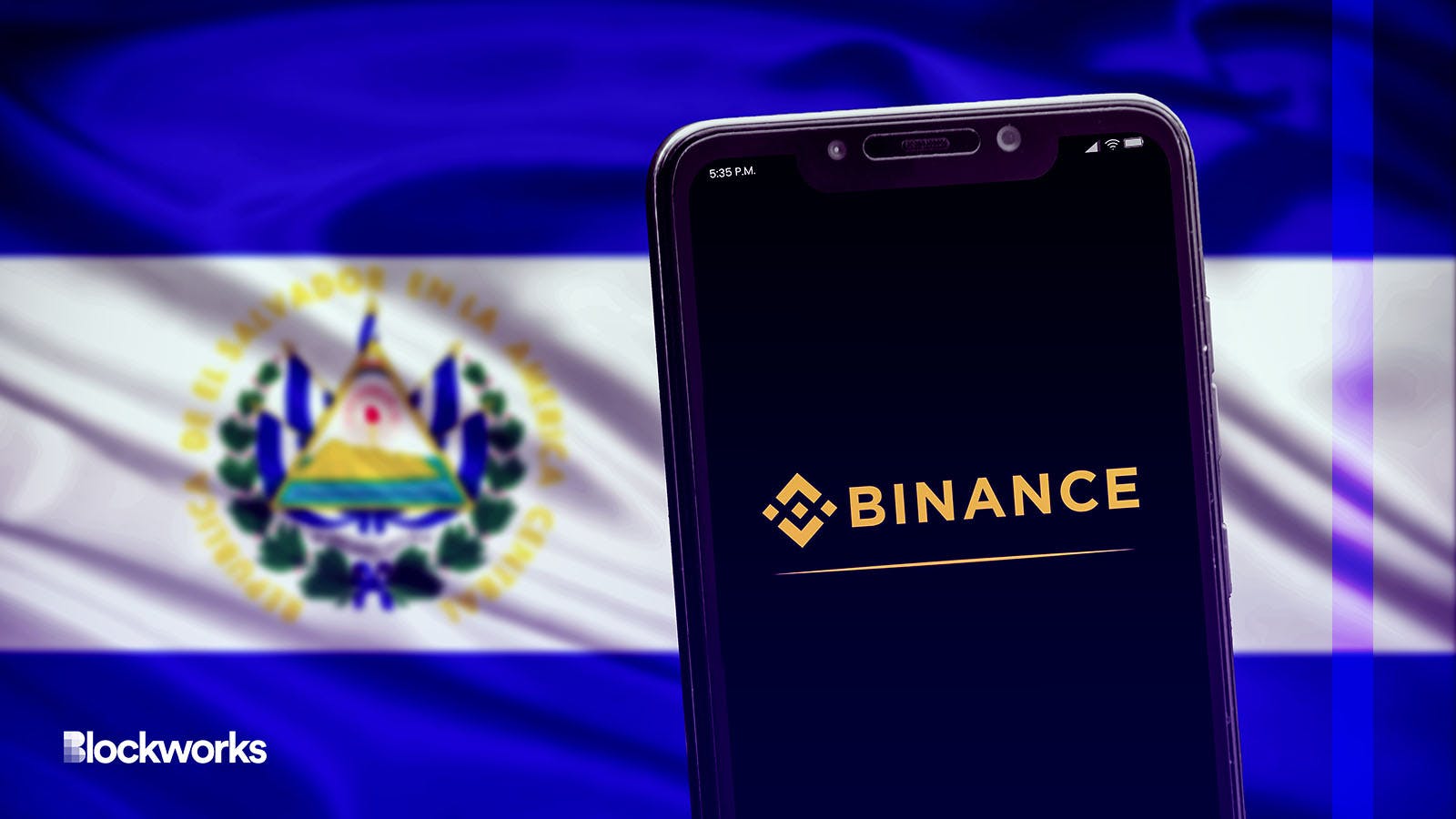Binance becomes regulated exchange in El Salvador
Binance is hoping its latest regulatory win will help offset recent challenges across multiple foreign markets

JOCA_PH/Shutterstock modified by Blockworks
Binance said Tuesday it has become the first crypto exchange to secure full licensure in El Salvador, a milestone the company is hoping will help buoy international regulatory challenges and gain approvals in foreign markets.
The Central Reserve Bank and the National Commission of Digital Assets granted Binance the country’s Bitcoin Services Provider license (BSP) and the first non-provisional Digital Assets Services Provider license (DASP) respectively, according to a statement.
It comes after months of communication with relevant authorities across El Salvador, Min Lin, Binance’s head of Latin America, said in the statement. The hope is that El Salvador’s market will help shore up losses across foreign markets.
The country became the first globally to recognize bitcoin as legal tender in 2021 following the passage of its Bitcoin Law. Under the law, entities or individuals offering crypto services are mandated to register with the central bank. There are currently more than 90 entities registered, though Binance claims it is the first to hold both BSP and DASP licenses.
Its licensure is part of the company’s ongoing plans to secure local permissions in key international markets, Binance said. The exchange currently holds approvals across 18 jurisdictions, including France, Italy, Spain, Sweden, and Dubai, among others.
Still, the exchange’s expansion efforts have not been without its hurdles.
On August 1, Nigeria’s Securities and Exchange Commission issued a warning against a Binance imposter, although the Nigerian regulator noted Binance.com, the global exchange’s URL, was “neither registered nor regulated” in the country.
Binance has also been forced to withdraw from several European countries this year, including Germany and the Netherlands, citing difficulties in registration and compliance with the regulatory landscape.
The withdrawal followed BaFin’s decline to grant a license to Binance in Germany, and the company’s failure to register as a virtual asset service provider in the Netherlands. Binance also scaled back its operations in Cyprus in July, attempting to navigate compliance with new EU regulations.
Adding to its challenges, Binance lost three key executives on July 9, as it continues to fend off regulatory probes worldwide. Departing executives include General Counsel Hon Ng, Chief Strategy Officer Patrick Hillmann, and Senior Vice President for Compliance Steven Christie.
Eleanor Hughes, a former Asia Pacific-based legal executive, has since filled Binance’s open general counsel seat. Hillmann and Christie both expressed positive sentiments at the time of their departure.
Get the news in your inbox. Explore Blockworks newsletters:
- The Breakdown: Decoding crypto and the markets. Daily.
- 0xResearch: Alpha in your inbox. Think like an analyst.






